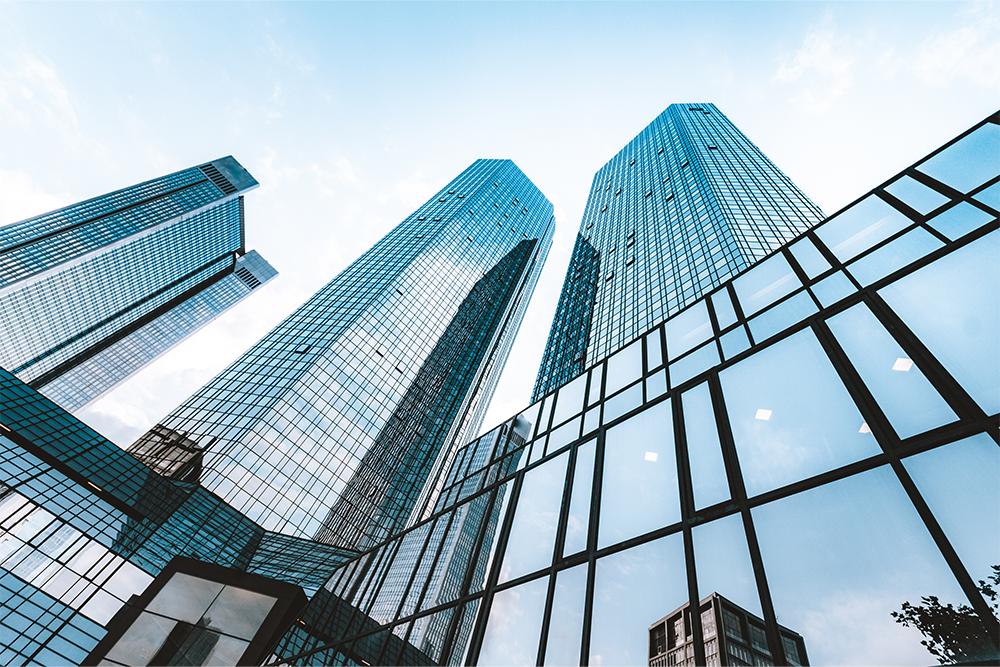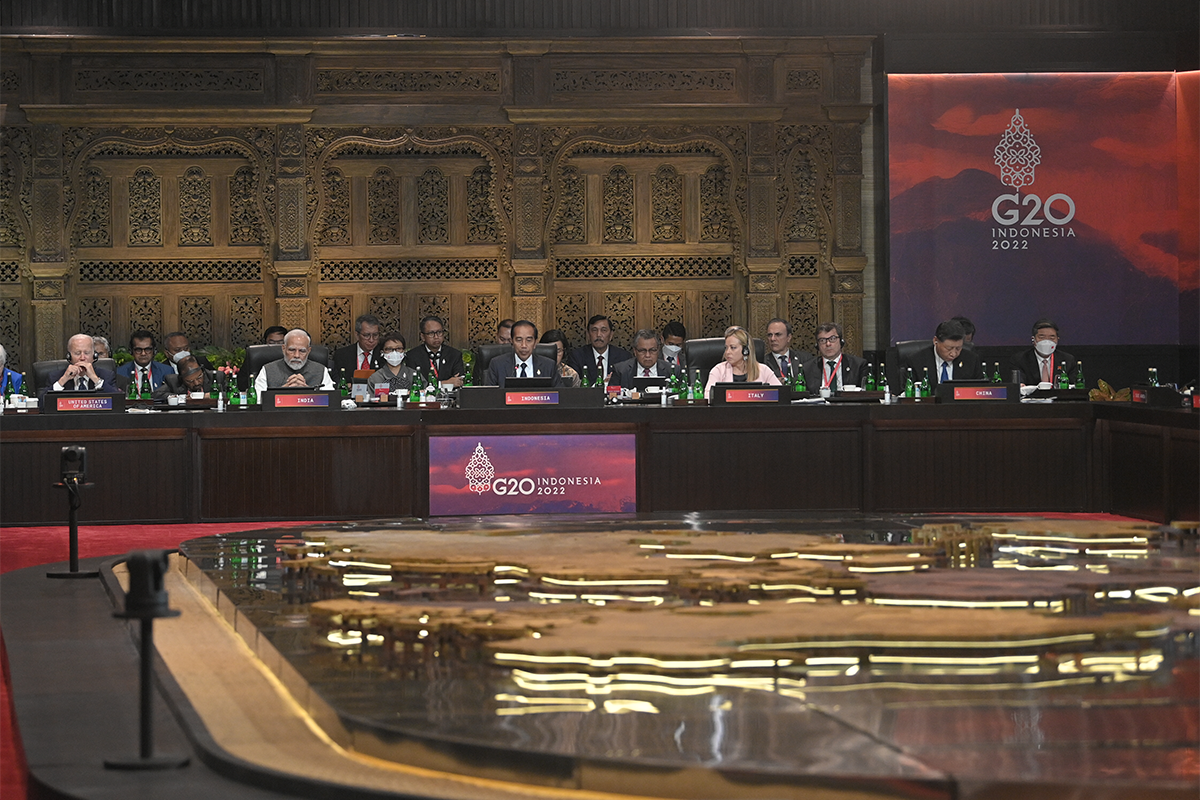890 results found
Featured results



More results
The Investor Leadership Network created this playbook to help institutional investors better assess and incorporate inclusion into portfolios. It provides the business case for inclusion, fundamental and advanced inclusion metrics, and case studies of the metrics being used.

The Blue Dot Network aims to help mobilise private sector investment by identifying and encouraging market-driven, transparent, and sustainable infrastructure projects. It establishes a voluntary, private-sector focused, government-supported project-level certification that aligns with the G20 Principles for Quality Infrastructure Investment, the UN Sustainable Development Goals, the International Finance Corporation (IFC) Performance Standards, the Equator Principles, the OECD Guidelines for Multinational Enterprises, and the OECD Recommendation on the Governance of Infrastructure.

This report outlines an approach to country platforms to help channel technical assistance and public and private finance to emerging and developing countries in order to support the achievement of net zero targets.

Join the GI Hub and Asian Infrastructure Investment Bank for a webinar that will present the case for investing in infrastructure technology (InfraTech) to support the transition to net zero.
We need more investment in economically, environmentally, and socially sustainable infrastructure, but there is real danger that investment by both the public and private sectors may slip backward
The current energy crisis underscores the urgency to scale up green infrastructure investment.
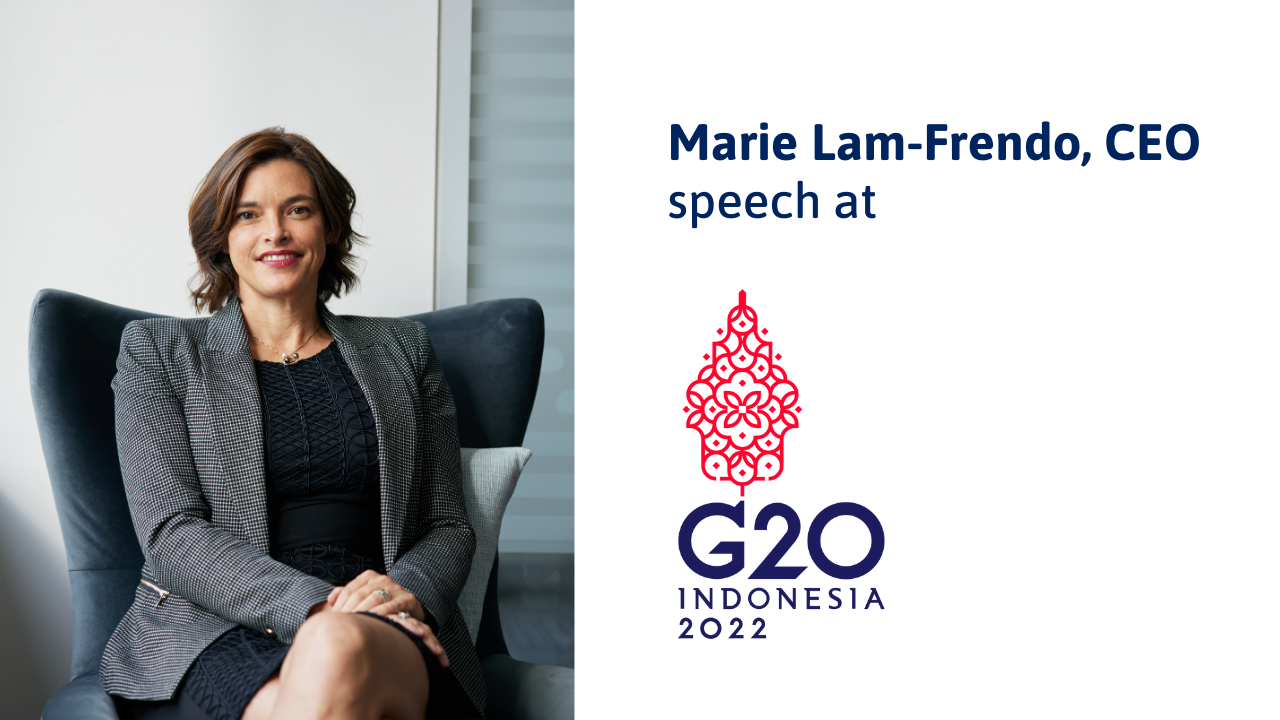



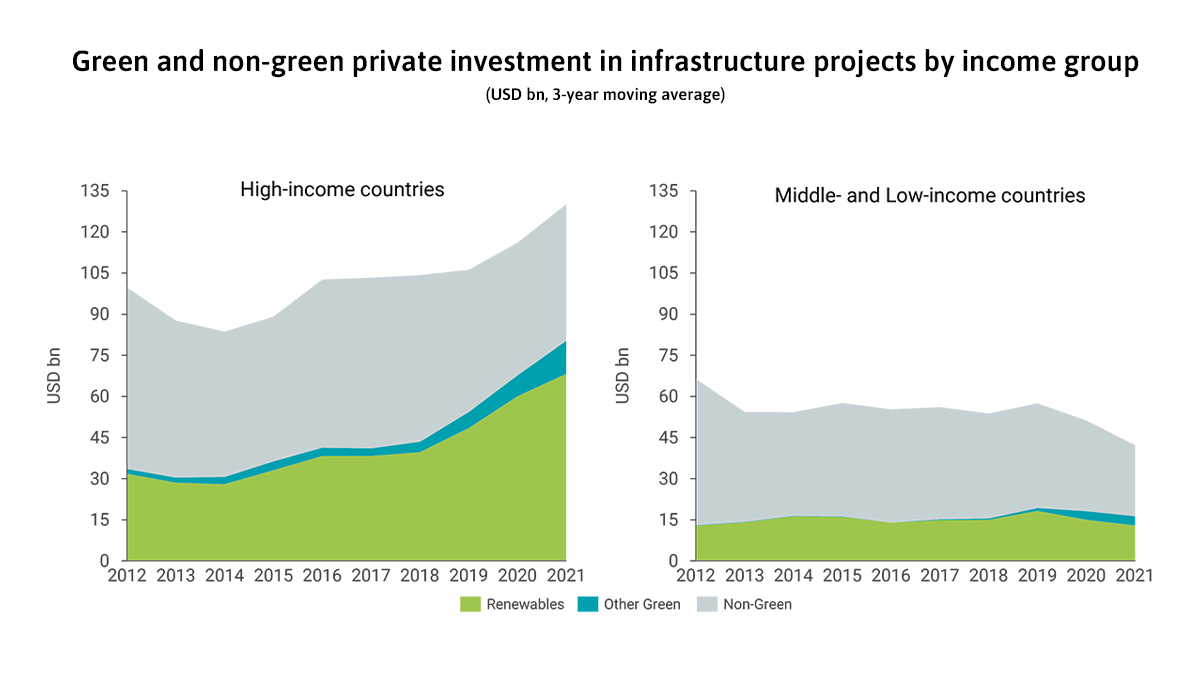
In 2021, global green private investment in infrastructure projects in primary markets rose to a record-high share of 60%, but this trend needs to accelerate and expand beyond renewables to meet climate goals.


This week, the G20 Heads of State and Government Summit was held in Bali, Indonesia. The Summit had the world’s attention, as we looked to G20 Leaders to tackle the multiple challenges of the war in Ukraine, increasing inflation and the global economic slowdown, and climate change.
GI Hub’s Sam Barr, explores why the time has come for a long-term approach to investment in health infrastructure.
This is a testament to multilateralism, even in challenging times
The Global Infrastructure Hub welcomes yesterday’s launch of the G20’s Pandemic Fund to address pandemic prevention, preparedness, and response, particularly in vulnerable countries.
At COP27 this week, GI Hub CEO, Marie Lam-Frendo moderated a panel session on Accelerating, Targeting, and Blending Sustainable Investment at the Sustainable Markets Initiative Terra Carta Action Forum.
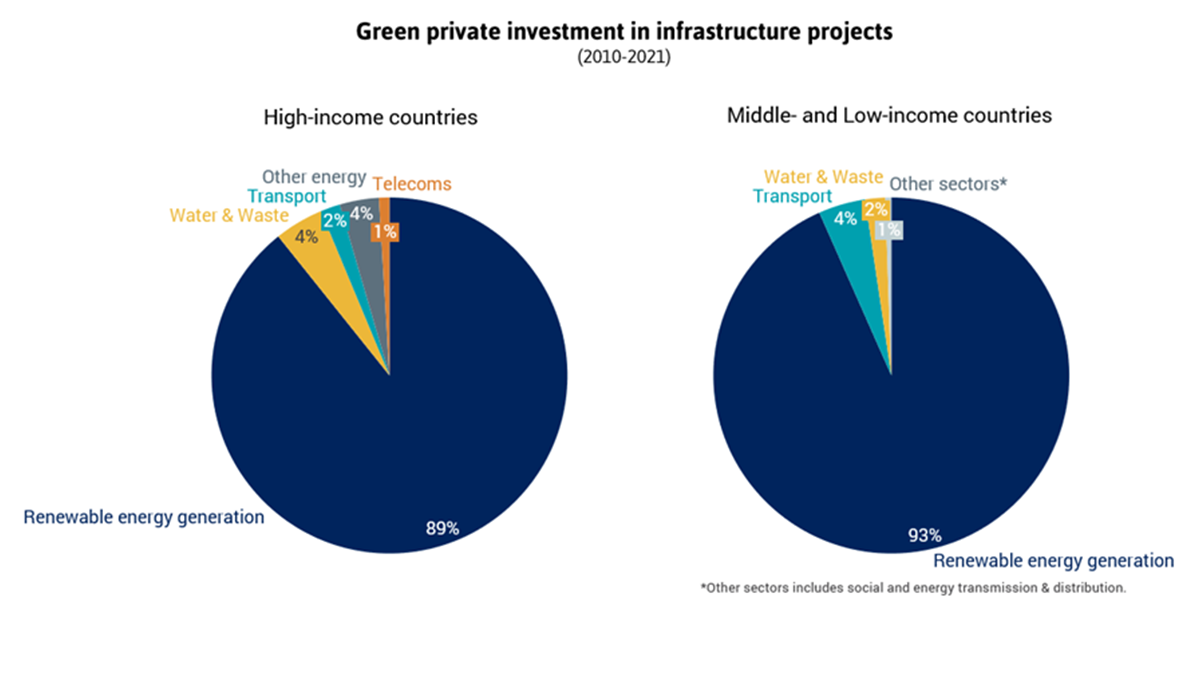
Green investment in infrastructure outside of renewables is limited. While renewables represent almost 90% of total green private investments in infrastructure projects, green investment in other sectors only represent 14%.


During COP27, our guest authors from WAPPP, CPCS Transcom Ltd and Princeton University explore recommendations for integrating and mainstreaming three climate-related risks.
The GI Hub’s CEO Marie Lam-Frendo and Director of Engagement, Rory are on the ground at COP27, read about their week ahead.


The Asian Infrastructure Investment Bank (AIIB) platform takes a holistic approach to financing support for the development and deployment of technology for infrastructure projects. This support is in the form of knowledge, networks, capital, innovation services and regulatory dialogue with members, investment leads, and clients.
AreA is a platform designed to change the way renewable energy is procured in developing countries, created by Greenmap , a non-profit organisation aimed at scaling up cheaper and faster renewable energy deployment in emerging economies



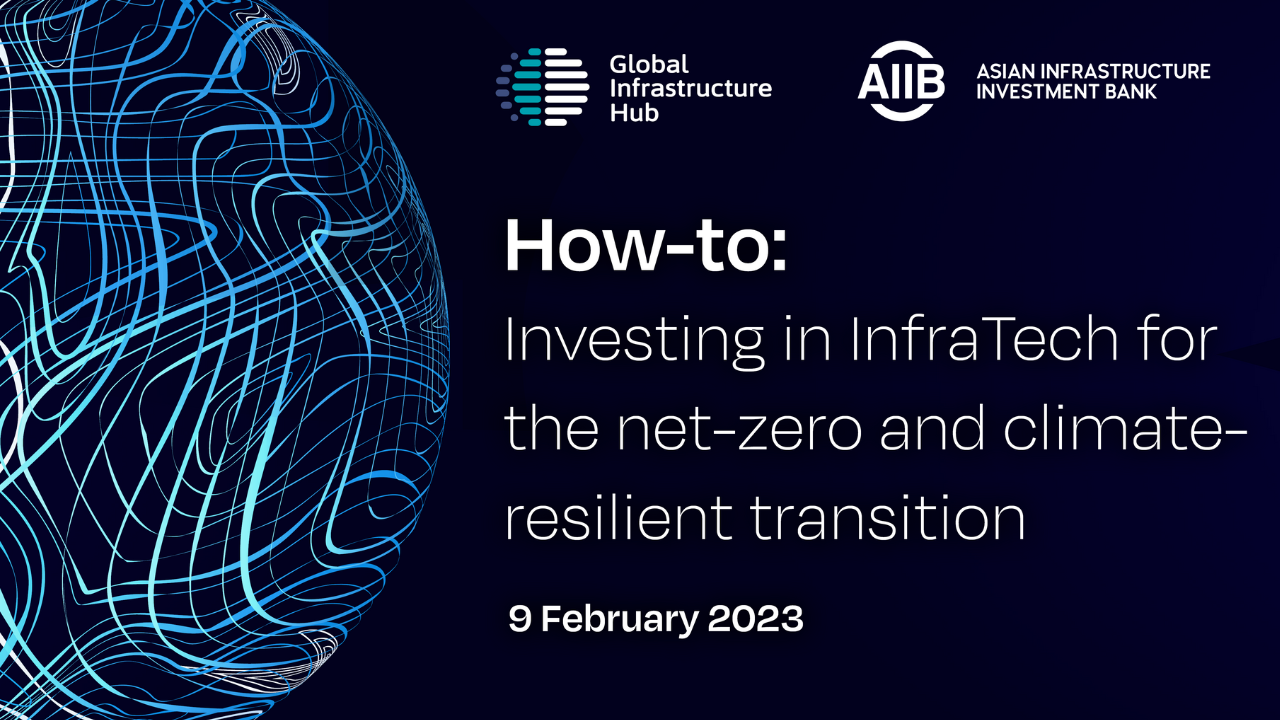

 Transformative Outcomes Through Infrastructure
Transformative Outcomes Through Infrastructure
